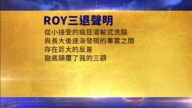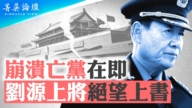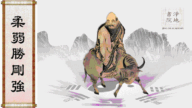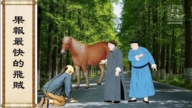【新唐人2013年01月24日訊】雖然中國生産和組裝著世界上幾乎所有的遊戲機,但奇怪的是,遊戲機在中國卻屬於「非法商品」。因爲中共政府主張「遊戲會毒害青少年的思想」,在2000年頒佈了「遊戲機禁售令」。不過,英國《每日電訊報》20號報導,現在,中共政府正把網絡遊戲當作向青少年傳播價值觀的新武器。
目前,中國網遊大軍人數達到了1.2億,當網遊已經成爲了一種文化,年輕人不再依賴傳統媒體的時候,一直被批評的「網絡遊戲」也被官方納入了宣傳領域。
由南京軍區和無錫「巨人網絡科技有限公司」開發的軍事遊戲「光榮使命」,在2011年配發全軍,2012年下半年又推出了民用版。目前,「光榮使命」軍用升級版和民用版不僅在商店有售,還可以通過網絡下載。
原《河北人民廣播電臺》編輯朱欣欣:「對這個遊戲,它也看到,要完全取消這個又不可能,所以它要利用遊戲,來傳播它的價值觀。從根本上來講,中共的這種專制體制就是『政教合一』的,它不僅僅是控制社會的經濟領域,它還要控制文化和精神的領域。」
英國《每日電訊報》20號說,「光榮使命」由7名宣傳官員精心編寫劇本、並在解放軍監督下完成,目地是通過執行一系列戰鬥任務,向年輕的玩家灌輸中共軍隊的「核心價值觀」。
香港作家、自由撰稿人張成覺:「因為在中共來說,槍桿子裡面出政權,軍隊是它上臺的一個很重要的支柱,它能夠維繫江山也是靠軍隊在那裏撐著。那麽他就要把青少年引導到軍隊這麼一批人的精神狀態裡面,這樣就容易保它的政權。」
這類「紅色遊戲」很多以抗戰為背景,被認爲是中國年青一代反日情緒的來源之一。例如「深圳中青寶互動網絡股份有限公司(Shenzhen ZQGame Co.)」開發的「抗戰」,和另一款所謂「保衛釣魚島」等遊戲,開發商明言,中央政府給他們提供了很多的支持。不過「保衛釣魚島」遊戲由於過分「紅色」,在中國「蘋果」商店遭到下架。
朱欣欣:「通過政治包裝、通過黨文化的包裝,讓遊戲中這種暴力取得一種合法性,實際上也是誘發人們這種暴力傾向,對培養人的這種嚮往和平、人道的精神還是有害的。」
除了格鬥類遊戲,另外,還有些遊戲專門針對青少年而設計,用來宣傳「黨文化」。例如中國最大的網絡遊戲公司之一——「盛大公司」研發了一款《學雷鋒》遊戲,專門「贈送」給共青團上海市委,在「漁陽里」紀念館投入使用。不過國內媒體說,這款宣教性的遊戲受到了孩子們冷遇。有的孩子在網上評論說「簡直是無聊,地球人沒那麽多時閒」。
張成覺:「所謂雷鋒的道德觀念早就破產了,中國大陸誰這樣幹的話,老人跌倒了你去扶他,老人很可能說是你推倒的,還讓你賠錢。學雷鋒做好事,甚麼叫好事?誰也不敢做好事。」
朱欣欣:「中共現在根據現實的變化,利用各種方式來鞏固它一黨專制的體制。我認為這並不是多麼有效的,因為它畢竟是和整個的世界潮流,和人性的追求自由、民主的天性背道而馳的,無論它採取甚麼花招、花樣都注定要失敗的。」
有關研發這些具有宣傳意義的遊戲資金和技術,《每日電訊報》的報導指稱,中共政府在過去幾年中,通過撥款和減稅的方式向遊戲公司提供巨額資金。
在此之前,《環球網》透露,「光榮使命」製作方之一的「無錫巨人網絡科技」的母公司,已經在美國上市「巨人網絡」集團。
採訪/李韻 編輯/尚燕 後製/黎安安
Internet Gaming: New Ideological Tool for Chinese Communist Party
For a long time, China has been the world’s factory
for the production and assembly of game consoles.
However, consoles are classified as “illegal goods” in China.
The Chinese Communist Party (CCP) regime claimed that
online multiplayer games poison the minds of the youth.
In 2000, China banned the sale of gaming consoles.
The Telegraph newspaper in the UK commented
that the CCP authorities now use online games as
a new weapon in propagating Party ideology.
So far, China has an army of 120 million online gamers.
Internet gaming is now viewed as a form of culture,
and youngsters no longer use traditional media.
The CCP regime has long criticized online games, but is
now used in the domain of expanding Party propaganda.
The Nanjing Military Region and Wuxi-based Giant Network
Technology, have jointly developed a military online game.
Called “Glorious Mission", the software was
put into service in the CCP army in 2011.
In the second half of 2012, a civilian version was launched.
Currently, the military upgraded version and civilian
version are on sale in stores, and also on the internet.
Zhu Xinxin former editor of Hebei State Radio: “The regime
knows it’s impossible to eliminate online games in China.
So it is making use of these games to spread its ideology.
In essence, the CCP regime is a ‘Theocracy’, controlling
the nation economically, culturally and psychologically."
On the January 20, The Telegraph reported
that “Glorious Mission was carefully scripted
by seven Propaganda officials and overseen
by the People’s Liberation Army.”
“Its purpose: to instil ‘the core values’ of the military in
its players, as they carry out a series of combat missions.”
Cheung Shing Kok, Hong Kong writer: “The CCP
believes that political power grows out of guns.
So the army acts a very important mainstay
for it controlling China and maintaining rule.
If it can successfully lead youngsters to a mental state
as that of the troops, its regime will be easily secured.”
Many such “Red Games” are set during the
war with Japan, in the period 1937-1945.
The games were thought to be a root for anti-Japanese
sentiment, which the young Chinese generation now hold.
This includes online games, such as “Resistance War”
and “Safeguarding the Diaoyu Islands”, developed by Shenzhen ZQ Game Technology.
ZQ Game told the media that the CCP central
authorities have given the company a lot of support.
Yet in reality, “Safeguarding the Diaoyu Islands”
was taken off the shelves in Chinese “Apple" stores.
It was deemed to have too much ideology.
Zhu Xinxin: “The packaging of politics
justifies the violence in the games.
This is a way to induce violent tendencies, which negatively
effects fostering people’s desire for peace and humanity.”
Apart from fighting, some games are embedded with CCP
“Party Culture”, which are specifically designed for minors.
This includes a game called “Learning from Lei Feng",
named after one of the Party’s ideological role models.
The developer, Shanda Corp., is
one of China’s largest gaming firms.
Reportedly, Shanda “gifted" the game
to Shanghai’s Communist Youth League.
The game has been put into service at the memorial site
on the former site of Communist Youth League central office.
China’s media said that the propaganda-themed
game was the least popular with minors.
In his online post, a minor commented on the game;
“It’s really dull, no one has much time for it.”
Cheung Shing Kok: “Lei Feng’s moral values
have already been deserted by Chinese nowadays.
Now in China, nobody dares to help
an elderly person who fell to the ground.
The elderly person may even allege that it was you
who pushed him/her down, and ask you for compensation.
The people have been educated to
learn from Lei Feng to do good deeds.
However, in today’s China, nobody dares to do good deeds.”
Zhu Xinxin: “Now the CCP keeps adjusting its methods
to cement its autocracy, but I don’t think it’s effective.
This is because its attempt is against global trends
and humanity, who yearn for freedom and democracy.
So no matter how many tricks
it uses, all will be doomed to fail.”
The Telegraph said that over the past few years,
the CCP “has funnelled millions of pounds to game
companies in the form of grants and tax breaks.”
Prior to this, the web version of the CCP-sponsored
Global Times reported that Giant Interactive Group,
Giant Network’s parent company, was listed in the U.S.




























